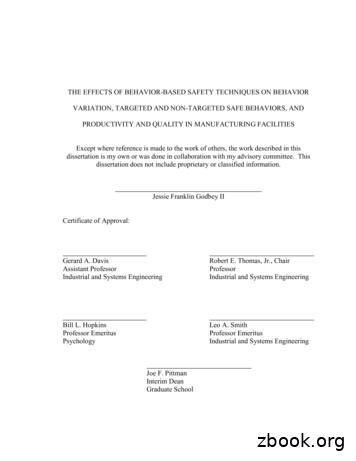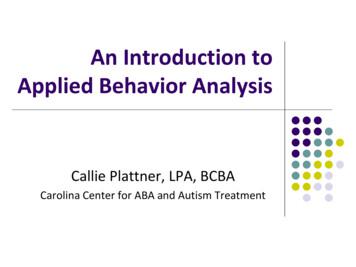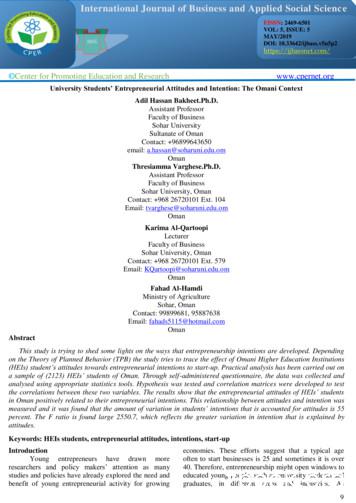Search system based information behavior model a research proposal
Verbal Behavior Verbal Behavior (V) is a class of behavior that is reinforced through the mediation of other persons (Skinner, 1957, p.2). Verbal Behavior is the application of behavior principles to language. Verbal Behavior categorizes language responses into different categories based on the function of the response Verbal Behavior is a subset of the science of Behavior Analysis
often referred to as behavior-based safety programs. Behavior-based safety programs are a systematic approach to promoting behavior supportive of injury prevention (Sulzer-Azaroff and Austin, 2000). There are numerous examples of effective behavior-based safety programs employing nonmonetary consequences such as feedback to increase safe
Verbal Behavior Verbal Behavior (V) is a class of behavior that is reinforced through the mediation of other persons (Skinner, 1957, p.2). Verbal Behavior is the application of behavior principles to language. Verbal Behavior categorizes language responses into different categories based on the function of the response Verbal
consumer's shopping behavior. Conformity behavior is a universal phenomenon in social psychology. Its essence is the change of attitude or behavior of individuals under group pressure [8]. In consumer behavior, herd behavior is mainly manifested in a shopping behavior in which a consumer individual is influenced by the
hand, refer to the perceived social pressure to perform or not to perform the behavior. The theory of planned behavior, in its intent to explain human behavior deals also with the antecedents of attitudes toward the behavior and subjective norms. The theory of planned behavior postulates that behavior is a function of relevant beliefs.
Dysfunctional customer behavior refers to customer actions that disrupt service en-counters by behaving against the organization's expectations and social norms [5,24]. This behavior has been variously described by scholars using the following terms: deviant consumer behavior [25], aberrant customer behavior [26], inappropriate behavior [27],
1 Pro-environmental behavior refers to personal behavior which aims at protecting the environment, such as separating waste, reducing energy and water consumption, etc. In this report the terms pro-environmental behavior, environmental behavior and environmentally friendly behavior will be used interchangeably.
Rule governed behavior: behavior controlled by a rule; enables human behavior to come under the indirect control of temporally remote or improbable, but potentially significant consequences. Contingency shaped behavior: behavior acquired by direct experience with contingencies. Cooper, J. O., Heron, T. E., & Heward, W. L. (2019). Applied Behavior
Much as changes in consumer behavior are forcing a revision of marketing strategy and the four Ps, the same changes in consumer behavior likewise are forcing a reevalu- . game; that term is too static for the degree of information immersion that we see today. Popular usage refers to awareness,.-' , behavior. 2. consumer. New .
behavior, and others getting a more extended 'analysis' in terms of behavior. However, radical behaviorism stops short of identifying feelings as causes of behavior. Among other points of difference were a rejection of the reflex as a model of all behavior and a defense of a science of behavior
that caused by human unsafe behavior is getting higher and higher in complex industrial systems. Aiming at the situation of lacking the basic theory research about human safety behavior, taking the construction of overall model of human safety behavior as the purpose, analysis of human safety behavior's shaping factors as the main line, the
Consumer Buyer Behavior refers to the buying behavior of final consumers-individuals and households that buy goods and services for personal consumption. What is Consumer Buyer Behavior? Model of Consumer Buyer Behavior. Cultural Social Personal Psychological Forces that Influence Buyer











